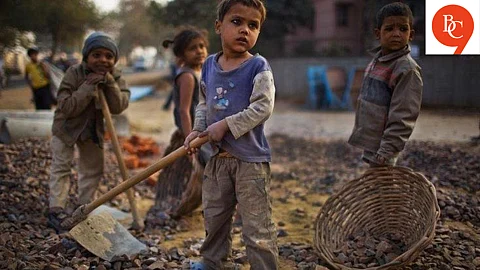

But this isn’t just a statistic buried in a government report. It’s a reminder that behind every underpriced product, every cheap service, and every underage domestic worker — there may be a child who deserves to be in school, not scrubbing floors or stitching clothes.
For the lifestyle-conscious reader, this day isn’t just about activism — it’s about mindfulness. Because the way we shop, consume, and interact with our community can either contribute to the problem… or become part of the solution.
Child Labour in India: The Ground Reality
According to the International Labour Organization (ILO), over 160 million children globally are involved in child labour — with India among the top contributors. Despite numerous laws, children as young as 7 or 8 are still employed in:
Domestic help and informal labor
Street vending and begging rings
Factory work (textiles, fireworks, bangle-making)
Agriculture and construction sites
In urban hubs like Pune, it’s not uncommon to spot children washing cars, selling toys at traffic signals, or assisting in dhabas. Most of these kids are out of school, unpaid, and unprotected.
Why It’s a Lifestyle Issue Too
We often associate lifestyle with luxury, choices, and wellness — but true lifestyle awareness means ethical living. Here’s why this issue belongs in your lifestyle feed:
1. The Cost of Fast Fashion
If you love a good deal on clothes, ask yourself: How is it this cheap?
In many garment factories, especially in unregulated industries, children are employed in hazardous conditions, working long hours to meet mass production demands.
2. The Tea You Sip or Chocolate You Love
Many of India’s tea estates and cocoa farms are known to involve underage labour — especially in harvesting and processing. That morning chai or sweet craving could unknowingly carry the burden of a child’s struggle.
3. The Help You Hire
Hiring underage domestic workers is illegal — but it remains widely normalized in Indian households. That child cooking, cleaning, or babysitting? They deserve a childhood, not chores. Hire responsibly. If you suspect underage help in your building, report it to the local child welfare authorities.
This Year’s Theme: “Let’s Act on Our Commitments”
The 2025 global theme emphasizes accountability — from governments and corporates to individuals like us. It challenges us to not just condemn child labour, but actively choose differently.
In a post-pandemic world where millions of families slipped into poverty, more children have been pushed into earning — often at the cost of education.
